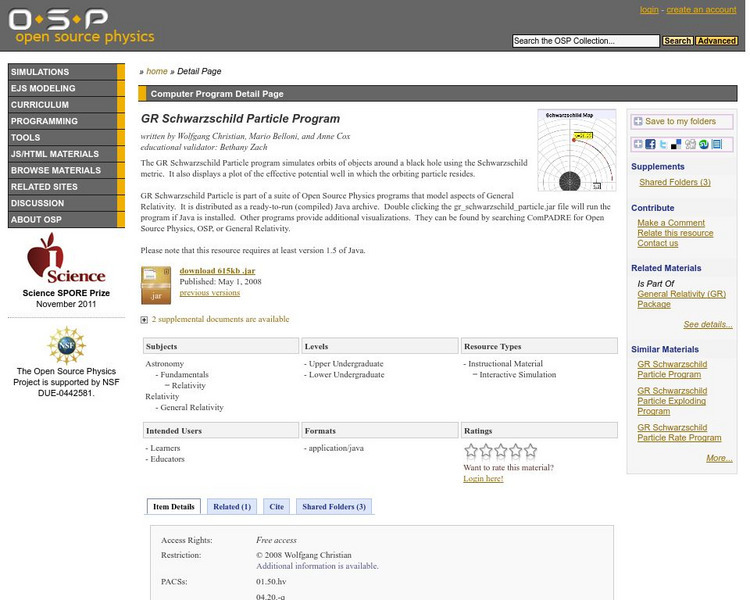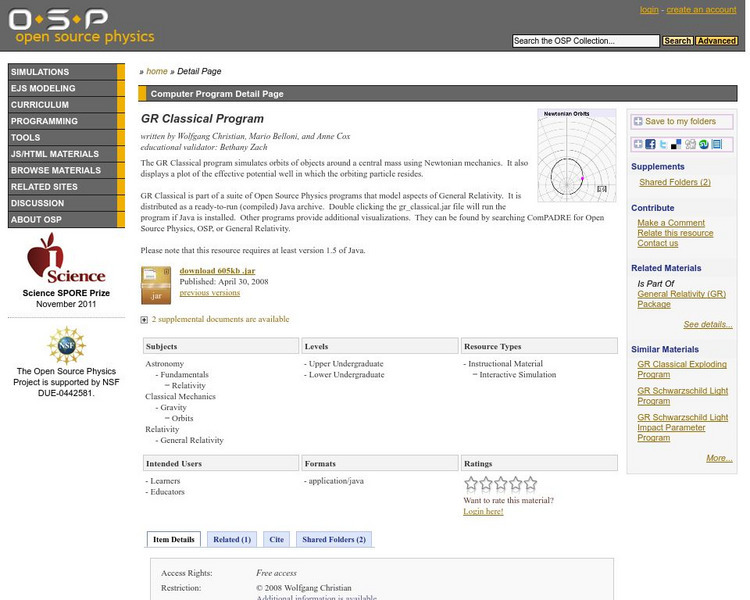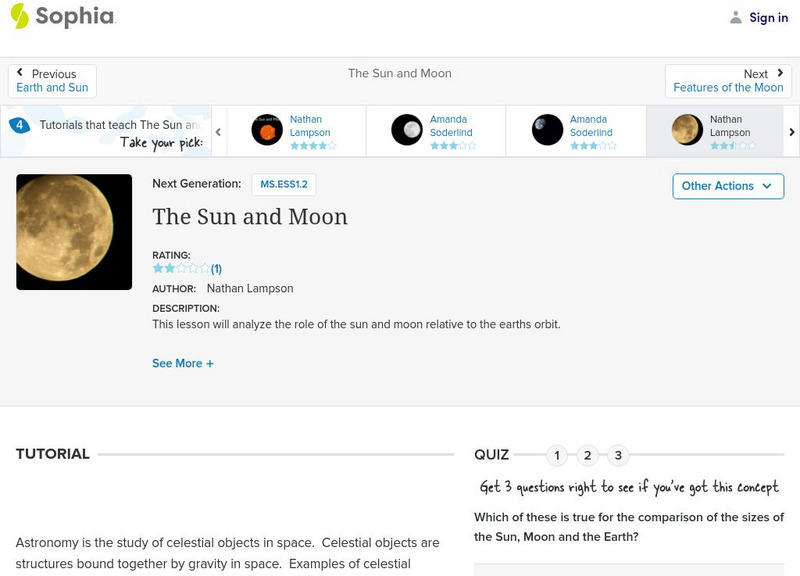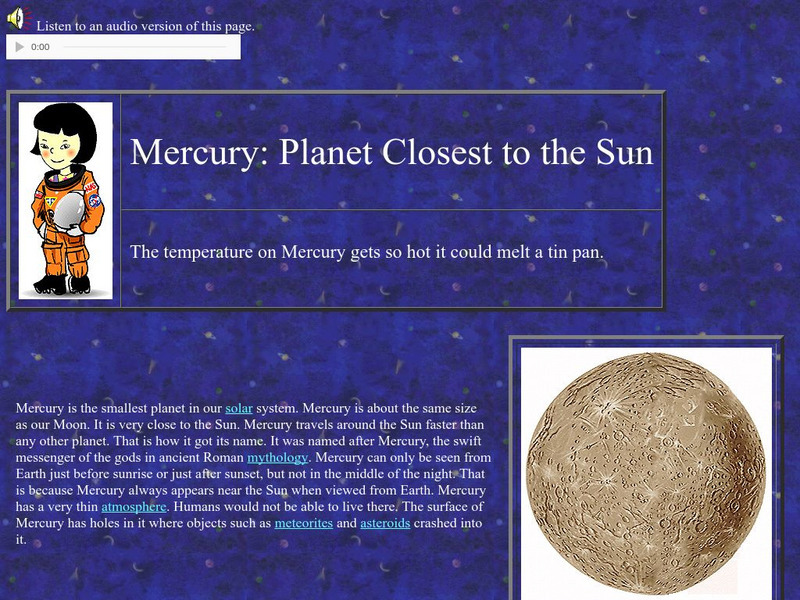American Association of Physics Teachers
Com Padre Digital Library: Open Source Physics: Schwarzschild Particle Program
Visualization using the Schwarzschild metric, showing the behavior of an object as it orbits about a black hole.
American Association of Physics Teachers
Com Padre Digital Library: Open Source Physics: General Relativity Classical
Visual simulation of the Newtonian orbit of an object around a mass includes a graph of the effective potential.
Enchanted Learning
Enchanted Learning: Zoom Astronomy
Where is our Solar System? How far away is the sun? What makes up the sun? Find out all you want to know about our solar system. This is a comprehensive on-line site about space and astronomy. Check out all of the excitement!
Sophia Learning
Sophia: The Sun and Moon: Lesson 3
This lesson will analyze the role of the sun and moon relative to the earth's orbit. It is 3 of 4 in the series titled "The Sun and Moon."
Sophia Learning
Sophia: The Sun and Moon: Lesson 4
This lesson will analyze the role of the sun and moon relative to the earth's orbit. It is 4 of 4 in the series titled "The Sun and Moon."
Physics4kids
Physics 4 Kids: General Physics
This website will teach you about heliosphere, heliopause, stars, the moon and orbits.
Physics Classroom
The Physics Classroom: Kepler's Second Law
Kepler's second law of planetary motion is stated and explained. An animation of the orbit of a planet and an accompanying graphic assists in explaining the meaning of the law of equal areas.
University of St. Andrews (UK)
University of St. Andrews: Orbits and Gravitation
A page describing the physics, mathematics, and historical figures associated with planetary motion, satellite motion, and universal gravitation.
NASA
Nasa Star Child: Mercury
Provides good information about Mercury and is a good starting point for information about the planet along with pictures and audio. Links to a simple fact table, puzzle, glossary, and more detailed information.
Georgia State University
Georgia State University: Hyper Physics: Global Positioning Satellites
The physics associated with global positioning satellites is discussed. The mechanism by which they triangulate the location of an object is described.
Georgia State University
Georgia State University: Hyper Physics: Circular Orbit
The necessity of gravitation to a circular orbit is discussed and equations for the orbital speed are derived from the law of universal gravitation. Binary systems in which two objects orbit about a center of mass are explained and...
Ducksters
Ducksters: Astronomy for Kids: The Planet Earth
This site is astronomy for kids and teachers! Here students can learn about the planet Earth of the Solar System including fun facts, mass, day, year, and distance from the Sun.
Other
Sandburg Center for Sky Awareness: What Are the Shapes of the Planets' Orbits?
In this lesson plan investigation students learn about the shapes of the planetary orbits by experimenting with ellipses of different proportions.
Curated OER
Hyper Physics: Global Positioning Satellites
The physics associated with global positioning satellites is discussed. The mechanism by which they triangulate the location of an object is described.














